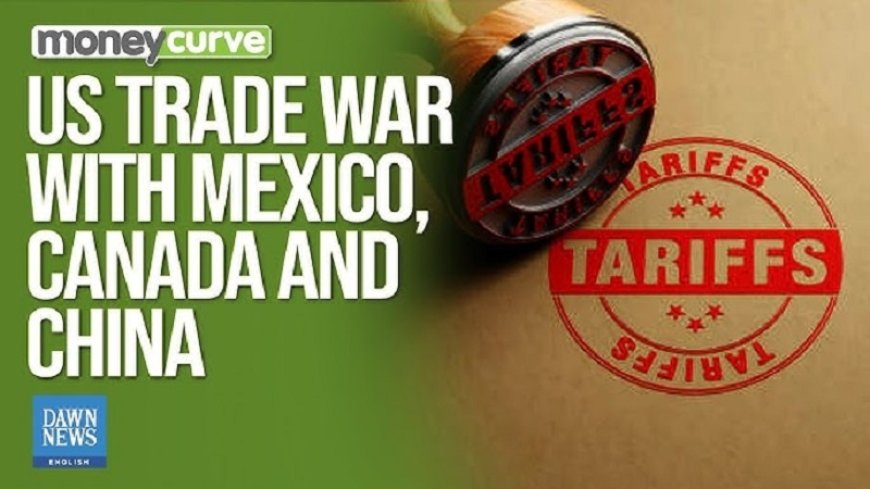How did Canada and Mexico get into a trade war with the United States?
After President Donald Trump initiated a trade war against Canada and Mexico by imposing a 25% tariff on goods imported from those countries, Canadian Prime Minister Justin Trudeau has announced a 25% tariff on goods imported from the United States as a retaliatory measure.

After President Donald Trump initiated a trade war against Canada and Mexico by imposing a 25% tariff on goods imported from those countries, Canadian Prime Minister Justin Trudeau has announced a 25% tariff on goods imported from the United States as a retaliatory measure.
On Saturday, Trump announced steep tariffs on imports from Canada, China, and Mexico, the United States' three largest trading partners. Mexico and Canada have vowed to retaliate against Trump's move, while China said it would challenge the move at the World Trade Organization and take "other measures" to respond.
Hours after Trump's move, Canadian Prime Minister Justin Trudeau announced a 25% tariff on US goods that "will include everyday products as a retaliatory measure." Trudeau said, "Trump's action will not only hurt Canadians, but will have "negative consequences" for the American people."
Mexican President Claudia Sheinbaum also announced on Saturday that Mexico will retaliate against the new tariffs imposed by Trump with higher tariffs on American goods, with other measures to be decided later.
The US President also announced a 10% tariff on goods made in China and announced that in the coming weeks, the tariff increase will also apply to European goods.

Beijing announced on Sunday that it "firmly opposes" the tariffs imposed by the US against Beijing, stressing that it will take "corresponding measures to firmly safeguard China's rights and interests."
Liu Pengyu, a spokesman for the Chinese embassy in Washington, said after the new tariffs were implemented: "If there are differences and frictions between the two sides, they should be resolved through dialogue and consultation." There is no winner in a trade war or a tariff war that benefits one side or the world.
Although Donald Trump has spoken since the beginning of the presidential race about imposing high tariffs to deal with foreign imports and strengthen the manufacturing sector in the United States, many experts believe that the implementation of this policy is not the right move and that it will be a cause of increased tension and inflation inside and outside the United States. However, Trump has ignored this view and has issued an order to implement the plan.
Trump has always considered free trade to be the main cause of the instability of the US economy, so he considers high tariffs to be an obstacle to this problem. This is in a situation where, from the perspective of the leaders of many major countries in the world, especially emerging economies and export-oriented countries, the adoption of anti-free trade policies will not only have a negative impact on the global economy, but will also have a negative impact on the economic development of the countries implementing the policy. In this regard, even Trump himself acknowledges the negative consequences of the tariff war on the lives of the American people, but he believes that these negative effects are short-term.

Although the new US President intends to strengthen the domestic US economy and encourage the country's citizens to buy American products by engaging in a trade war, it seems that, in the long run, this policy will not only affect the US and its trading partners, but also the global economy, because the implementation of this policy in the long term threatens the growth of international trade as well as the foundations of a multilateral and disciplined trading system.
Also, among the consequences of the implementation of this policy, there is instability in the global trade and raw materials market, growth in external debt, and inequality in economic and social spheres.
On the other hand, the results of these policies could also lead to the isolation of the United States because even many of the United States' allies have come to the conclusion that Washington is not a reliable commercial and political partner, so, in the long run, they will strengthen regional and bilateral cooperation without involving Washington.
The creation of groups and communities such as BRICS as well as regional alliances are steps that have been welcomed with open arms by the nations of the world, an issue that Trump cannot tolerate.
Meanwhile, countries like Canada, Mexico, and China have announced their opposition to Trump's move, and it appears that Trump has begun to take a very difficult economic gamble.













































